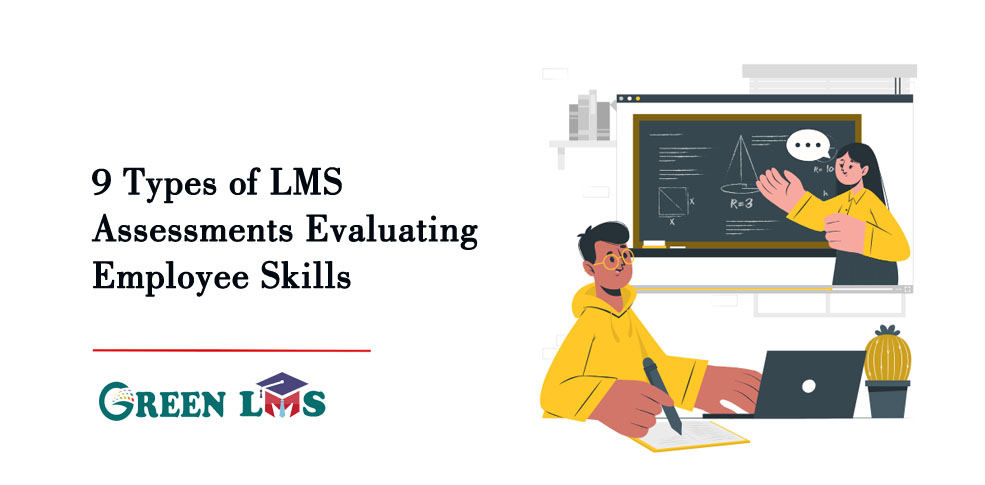Corporate learning is continuously evolving, but what’s certain is that learning management systems (LMSs) are the preferred technology, with 82% of organizations using it. It’s a big step forward for companies with many employees working remotely from various parts of the globe.
Learning is much easier with the help of LMSs as they make e-learning courses available and accessible for all employees. The challenge is ensuring that learning objectives are met and that learners reach the skill levels necessary to perform well in their roles.
With learners having unprecedented autonomy, LMS assessments must be truly indicative of the levels of mastery achieved through the e-learning courses. Furthermore, L&D professionals depend on these assessments to demonstrate the effectiveness of every training program they deploy.
Your platform offers many ways to create LMS assessments
Assessments are necessary but generally don’t make for crowd-pleasers. Many adult learners still think of their sometimes stressful formative years whenever they come across the words “quiz,” “test,” or “multiple choice.” Furthermore, instructional designers need to ensure that the online assessment results are accurate and accurately measure learner progress.
This is where a good LMS comes in handy, as it has many options to cater to learners’ needs and make the evaluation process engaging and fun. The many types of LMS assessments, as well as the possibility to customize them, are essential for the success of corporate training programs.
Best practices for creating LMS assessments
Online evaluations come with several challenges and there are several pitfalls instructors need to avoid. Here are some helpful tips about creating LMS assessments:
Allow multiple attempts
The point of the training is for them to remember and apply the information, not to get it right on the first try. When the first answer is incorrect, the learner has to rethink the question and revisit the information, leading to a better understanding.
Use the automated grading option
Automated grading eases the instructor’s workload. Adult learners want autonomy — to feel like they are in charge of their learning. When the assessments are auto-grated, the results are immediate, thus keeping learners engaged with the content.
Enrich with gamification
Learners can earn points and badges for completing assessments. The gamification of training motivates them to pass each assessment, and they’re also rewarded automatically for their good results or attempts.
Make use of learning analytics
LMS assessment results offer valuable insight into the effectiveness of training. They also hold the key to identifying knowledge gaps and content areas that are either too difficult or too easy. By employing the platform’s learning analytics features, you can get comprehensive reports to showcase a specific program’s strong and weak points.
Use competency-based training
Corporate training and development focuses on building skills and competencies that employees need in the workplace. Ideally, your platform has a competency-based learning feature that you can use to ensure every e-learning course is built to evaluate clear and specific competencies.
Join the revolution towards inclusive, and accessible, including LMS for Universities, LMS for Schools, LMS for Corporate organizations. and effective LMS for education for all.


